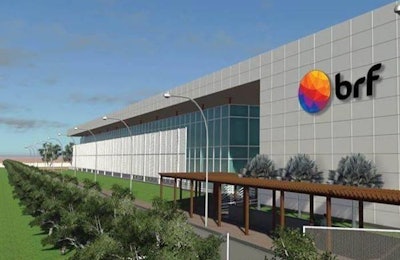
In what BRF executives described as the “most challenging year in BRF’s 10-year history,” the company reported a net loss of BRL4.47 billion (US$1.2 billion) for the 2018 fiscal year and a net loss of BRL2.13 billion (US$569.7 million) for the fourth quarter of FY 2018.
Those results reflect a 171 percent year-over-year increase in its net loss for the quarter, and a 306 percent increase in net loss for the full year.
The Brazil-based meat and poultry company reported its 2018 financial results on February 28.
In a message from management on the BRF website, Global Chief Executive Officer Pedro Parente and Global Chief Operating Officer Lorival Nogueira Luz Jr., noted that FY 2018 saw protectionist measures aimed to close major import markets, cost pressure in domestic markets, logistical issues posed by a trucker strike, and a second round of police investigations centered around the Operation Weak Flesh scandal. The company also cited difficulties with governance and a lack of structure within its teams.
Closing and selling of plants
The company noted it has taken measures to improve its financial situation, but it greatly reduced its capacity in doing so.
“As a short-term response to these evolving events, we granted collective vacation periods in seven plants, adopted the layoff mechanism in our Chapeco-SC unit, and promoted operating adjustments that affected approximately 5 percent of our workforce. We also shut down the turkey slaughter plants in Mineiros-GO, Francisco Beltrao-PR, and Chapeco-SC. Although not able to completely offset the negative effects on business, these were comprehensive and timely responses that mitigated impacts on our results,” Parente and Luz stated in their message.
“Recognizing the need for additional measures to address this adverse scenario and to accelerate our financial deleveraging process, we sold our assets in Argentina, Europe and Thailand as well as our plant in Varzea Grande-MT, along with several real estate assets.”
Management solutions
The BRF executives also mentioned efforts to strengthen its internal business structure.
“Of the tasks we have undertaken thus far, rebuilding our Executive Committee is the most significant because it marks the transformation of our senior leadership. We hae already assembled a global-level team across all divisions after searching talent within major corporations and several parts of the world,” Parente and Luz stated.
“In addition, we have established three fundamental company commitments: security, quality and integrity. These are non-negotiable, and a zero-tolerance policy will apply to those found in violation of these commitments. In addition, we have implemented policies to improve diversity levels throughout our company, which are particularly low within leadership positions.”
















